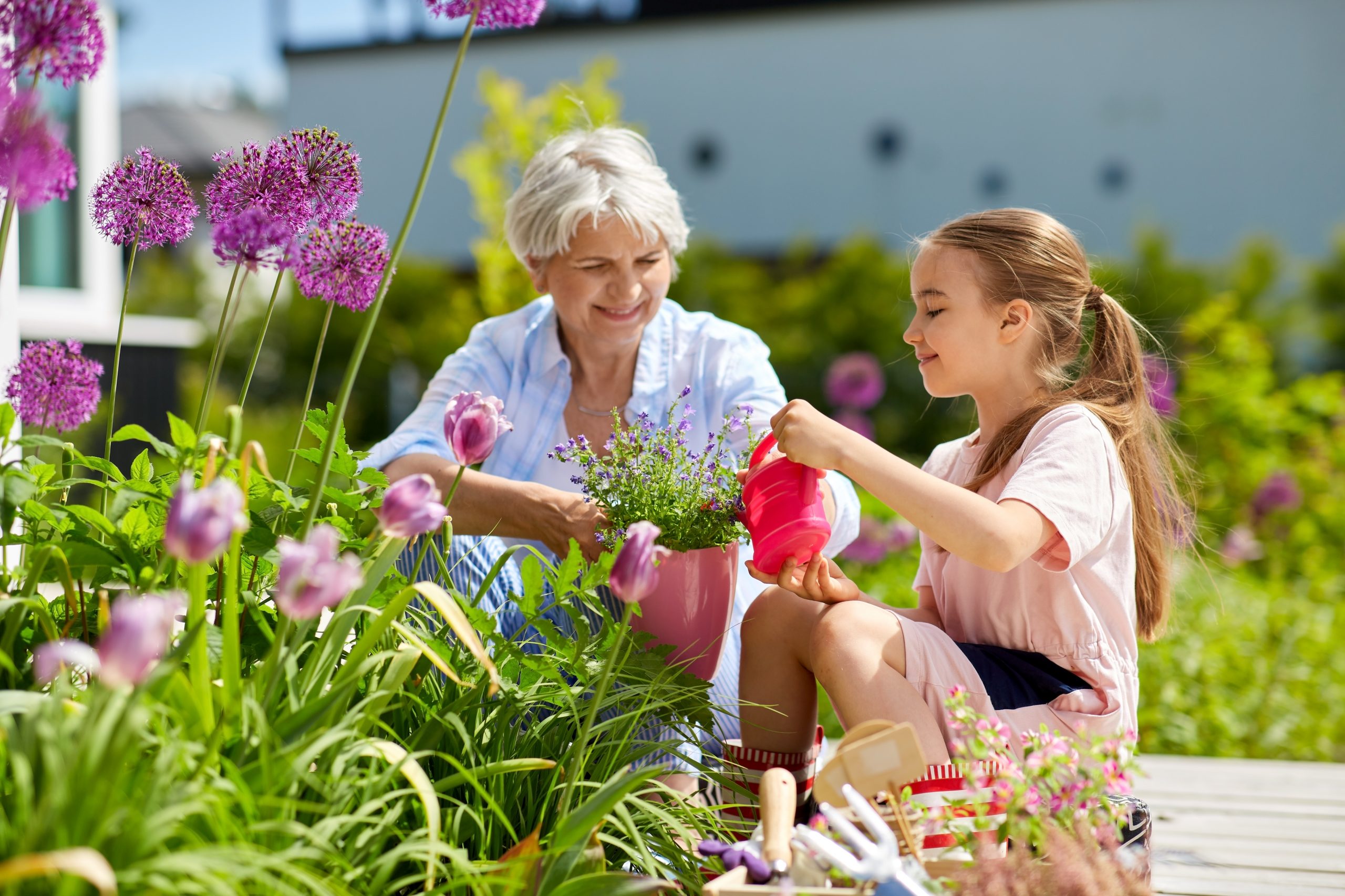All of my favorite memories take place in the great outdoors. Whether it be trekking on a family hike in the mountains or relaxing on the porch with a cool glass of lemonade, there’s nothing I love more than being outside.
One of the best places to spend time outside is in the garden. Gardening is relaxing, a great way to work with your hands, and is so rewarding. There’s nothing like seeing a small seed grow into a massive sunflower or making a delicious soup out of home grown vegetables.
I haven’t been fortunate enough to have a garden of my own yet. The elementary school I taught at, however, had a community garden which teachers could use to help students understand the basics of botany. The garden grew vegetables and flowers alike, and the kids had so much fun wandering through the different garden boxes and learning about plant life.
Caring for plants is an amazing skill for kids to have. There are so many benefits of gardening for students, and the importance of gardening in early childhood is often overlooked. So what do you learn from gardening, and what are some reasons to teach your kids how to garden?
1. Gardening enhances fine motor skill development
Young gardeners can practice and refine their fine motor skills when working in the soil. When you’re teaching your child to fill up a watering can, pick weeds, or dig a small hole, every single muscle in their hand is being exercised. This in turn helps them develop fine motor skills that they’ll be able to use in everyday life. For example, teaching a kid the proper way to hold a watering can or shovel will help them carry objects in other aspects of life.
Developing fine motor skills will also help your kids in the classroom. Holding a pencil and writing legibly takes a lot of focus. By practicing whole-hand grasping and the pincer grasp when gardening, kids will have no trouble perfecting their penmanship. Who knew that one of the benefits of watering the plants for toddlers was better handwriting!
2. Helping plants grow introduces children to science
Gardening is a great way to make your kids excited about science. One of my favorite subjects to teach is botany. It’s so exciting to show children how plants grow when they’ve been taken care of. When a six-year old finds out that plants are living things just like they are, their mind will be blown!
If you’re looking for a fun experiment that kids will love, try growing your own avocado plant. We did this in my first grade class, and it was an instant hit. Find some ripe avocados and remove the pit. Make sure you don’t cut into it! Instead, poke three toothpicks equidistant apart about ¼ to ½ inch into the pit. Use these toothpicks to suspend the pit over a glass of water. The first inch of the avocado pit should be submerged, as shown in the picture. Place the glass in some indirect sunlight, and wait for the magic to happen!
Within a few weeks, roots should start growing out of the bottom of the pit. Eventually, a stem and some leaves will spring out of the top. Kids love to see how a plant grows in real time, and this experiment is the perfect way to teach them about roots and stems.
3. Gardening is therapeutic and reduces stress levels
Every little scientist gets stressed out now and then. Thankfully, gardening is therapeutic, and a great way to reduce your child’s stress levels. Studies show that spending a few minutes in the garden at least two or three times a week noticeably reduces stress levels, and helps kids feel satisfied and engaged with the world around them.
If you don’t have space to garden, get a few houseplants that your kiddos can help take care of! Even just watering plants and digging their little hands in pots of soil can help your kids slow down and relax after a long day.
If you don’t have any houseplants, I recommend checking out some of Troomi’s KidSmart™ apps. These are great games and applications that encourage your child’s natural curiosity. Any Troomi phone with the Discover plan has access to KidSmart™ apps like Toca Plant Lab, a fun game that encourages your little one to start developing their own green thumb. Click here to learn more!
4. Caring for plants teaches kids to care for the environment
Climate change and global warming are hot topics in the world right now (pun not intended) and for good reason. There are so many simple things we can do to help protect the Earth and its natural resources. To help kids better understand the necessity of preserving the environment, let them loose in the garden!
Learning how plants grow teaches kids many valuable lessons about sustainability and the importance of the natural world. Encourage your kids to learn more about how trees produce oxygen, and how we are able to breathe in turn. Show them how pollinators like bees and butterflies rely on garden flowers to survive, and then how the flowers rely on the pollinators to grow.
5. Growing their own food encourages children to eat healthier
Some kids are notoriously picky eaters, especially when vegetables are involved. Brussels sprouts are the common villain, but I know so many kiddos that refuse to eat anything green or with seeds in it. One of my students wouldn’t eat strawberries because they had a green top. Who doesn’t love strawberries?!
It’s no surprise that fruits and vegetables are an important part of a child’s diet. To combat any pickiness, help your kids grow their own food! If they see how vegetables grow and are an active part of the process, kids will be far more excited about eating healthy. Introducing them to the joy of growing their own food helps build excitement about healthy eating.
6. Gardening is great for family bonding
A garden is a communal space, where parents and kids work together to create memories and help plants grow. As such, gardening is the perfect way to spend some quality family time.
When I was a kid, Saturdays were reserved for yard work. My dad and I would mow and edge the lawn while my mom and siblings would work in the garden, weeding and pruning excess foliage. I probably complained about it at the time (as most kids would), but I look back on those busy days so fondly. I can’t wait until I am a parent myself and can teach my kids how cool planting a garden is.
So what are you waiting for? Grab a trowel and a packet of seeds and get outside! While you’re at it, don’t forget to keep an eye on the Troomi blog for more parenting tips and tricks.


